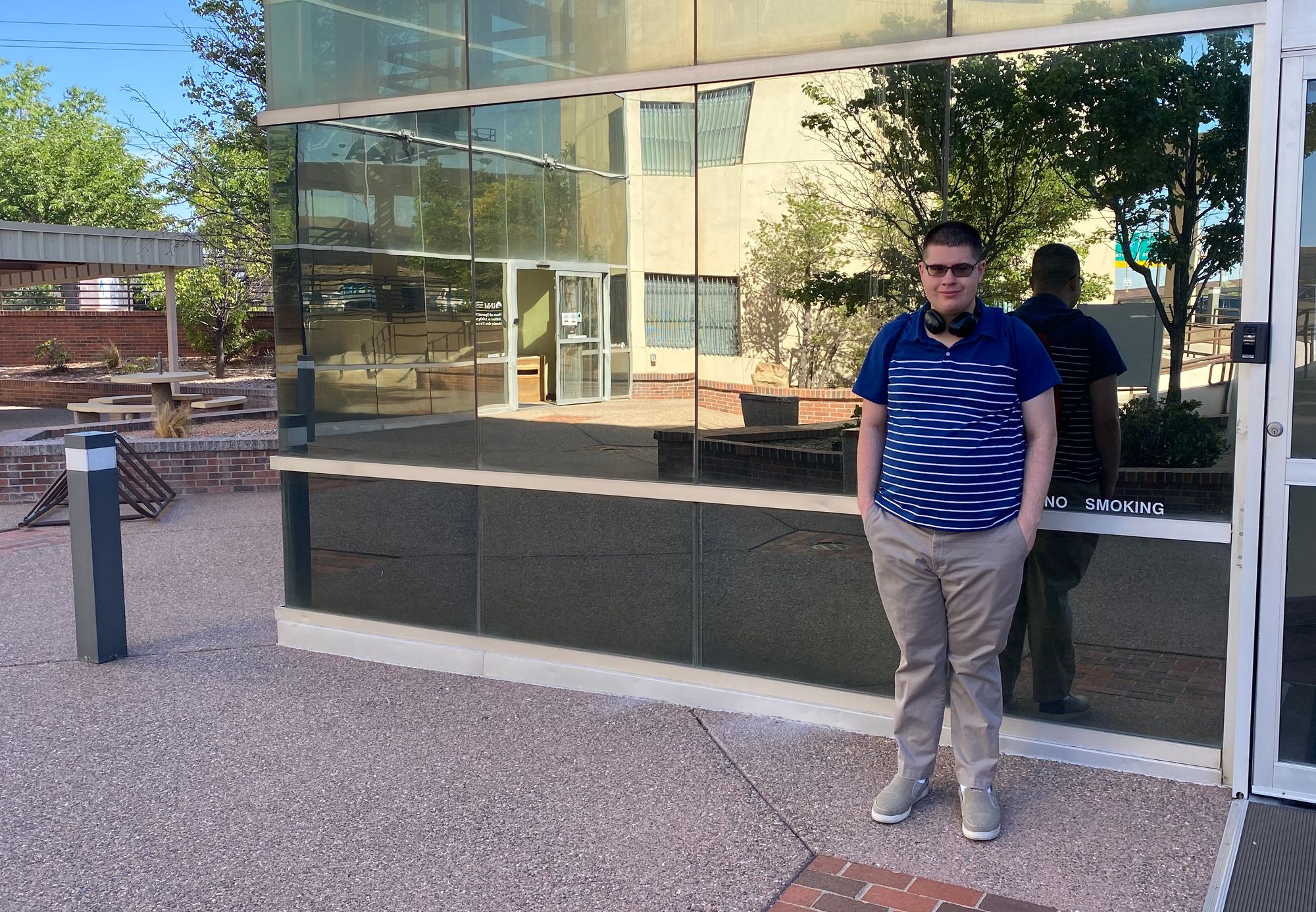Success Story: Nicolas Rodriguez
Age: 20
Hometown: Albuquerque, NM
Interviewed by Dr. Aaron Kelly Anderson on July 6, 2023
I recently had the privilege to chat with a young man who has found successful job placement through the services he has received at New Mexico DVR and LSG/UNTAPPED. Nicolas, a 20-year-old man who has lived in Albuquerque his whole life, recounts his journey towards his current position and speaks on his future goals...
Aaron: “What is your current job, and who do you work for?”
Nicolas: “So, my current job, they call it an ‘Employment Assistant.’ It’s over at the CDD, the Center for Development & Disability. So, my boss is the head of HR, and I basically just help her maintain all the current and recent files. And then, with all the older files, basically, after a certain time—so, right now, we’re doing stuff from 2020 and 2019, because of course we had a lot of stuff pile up during the pandemic. Then, also, she didn’t have any assistants once they came back to the office after the pandemic, because all the employees that were under her left during the pandemic. So, that’s why I got the position, because she needed someone to basically replace them.”
A: “Okay, excellent! And how did you learn about New Mexico DVR?”
N: “So, I learned about it through a friend—I think my parents, actually—a friend of my parents. I don’t know for sure if I remember this correctly, but I’m pretty sure it was through a friend, and then they got referred to the DVR. We had a meeting with them, and then that’s how we met LSG, because they basically let us choose what organization we wanted to do job coaching for. And then, I chose LSG because they specifically worked mainly with kids on the autism spectrum, so that’s why I chose LSG.”
(NOTE: Nicolas later clarified that he first heard of LSG through someone at one of his IEP meetings in high school.)
A: “Right, absolutely. And how would you say DVR has helped you throughout your process of searching for a job and securing a job and so forth?”
N: “Well, I think they were really helpful because, I mean, without them, we wouldn’t really know where to go to get job coaching, so they really helped there. And also, just being able to choose which one you want and, like, being able to do the research and making sure you’re picking one that’s right for you—that really helped out with selecting a good job coach.”
A: “Okay, yes, excellent. And what is your disability, and how would you say it affects your work or does not affect your work?”
N: “So, the disability I have is, I’m on the autism spectrum. So, I have a little bit of a hard time with, like, the fine motor skills sometimes. Sometimes, if they’re trying to show me how to do something, it may take me longer to get the hang of it on how to do it correctly, especially if it’s fine motor stuff. Not necessarily just general motor, but it’s more like the fine motor where you need to be a little bit more precise with your fingers. It takes me a little bit longer to get the hang of how to do that than a normal person without autism probably would take.”
A: “Right, right.”
N: “Then, of course, I may need to have stuff repeated to me, just to make sure I’m doing the right thing, that I’m not just going off and doing something and then it’s not correct, then—yeah, get in a sticky situation.”
A: [chuckles] “Right, yeah, absolutely—it does happen!”
N: [chuckles] “Yeah.”

A: “And finally, what would you say your future plans are for your career path? Or just in life?”
N: “So, I’m currently attending UNM right now; I’m in the pre-pharmacy program. And, after my undergraduate, I’m gonna plan on applying to probably the College of Pharmacy at UNM and, if I can’t get in there, just try to get my degree to become a pharmacologist so I could do drug research and innovation. And, as of right now, I’m probably just gonna keep this job I have right now and keep it until then, because it really helps. It’s really helpful because they work around your class schedule. So, like, you don’t necessarily have to work if you have finals or something. They don’t really—you don’t have to work if it’s just a test, but like, during finals, they let you take work off so you can study for your finals. So, it’s really helpful how they work around the schedule, because I know, for a lot of other employers, they just expect you to work whenever they tell you to, and then you can’t get out of it. Makes it really difficult.”
A: “Right, absolutely. Well, of course, best of luck with that! It sounds like you’re doing a very good job so far.”
N: “Yeah, thanks!”
